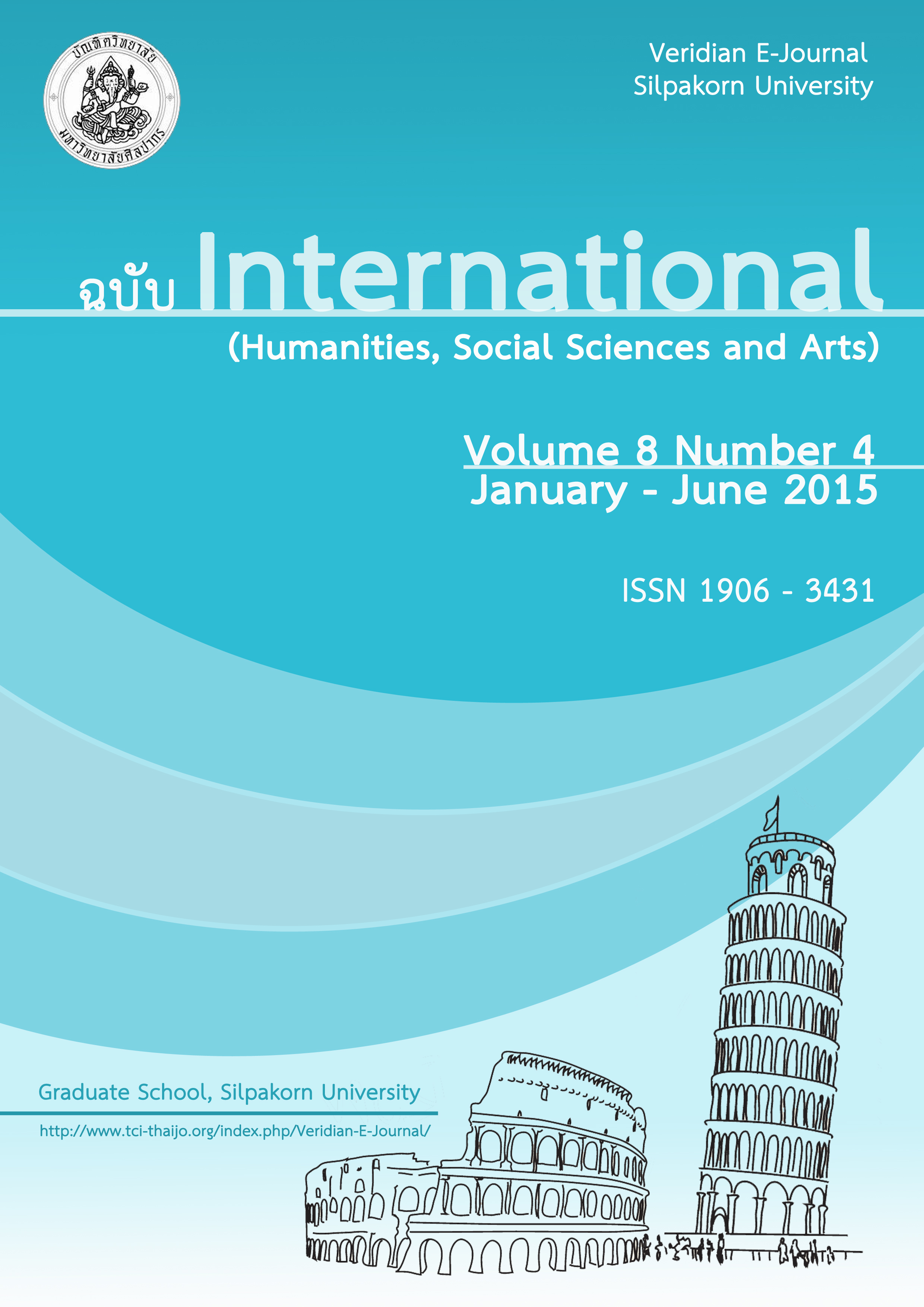Knowledge Management of Role-Model Farmers in Premium-Grade Beef Production
Main Article Content
Abstract
Abstract
The purpose of this qualitative research was to study knowledge management of role-model farmers in premium-grade beef production. Data were collected by interviewing five successful farmers using adult learning and knowledge management as informimg theoretical framework. The study found that knowledge management of role-model farmers was a continuous process that occurred at an individual level within six stages :1) Knowledge determination from the changes of cost and marketing conditions.; 2) Knowledge Identification including the acquiring wisdom tips and techniques from famer’s ancestors or other people who have a good personal rapport, and academic knowledge from agriculrural agencies and institutions.; 3) Knowledge Creation involving the consideration of new data or information received by thinking and comparing with their own previous experience, looking at cost and feasibility of implementation, screening by conducting the experiment by themselves to see the result before accepted or rejected its. Knowledge was sometimes created from their trial and error leading to knowledge discovering by chance.; 4) Knowledge Storage in the form of individuals’ perception as new experience (Tacit Knowledge) and also written notes (Explicit Knowledge).; 5) Knowledge Sharing by way of non-formal assimilation onto the way of life without specific set of objectives and themes, and also formal formation according to the social role with clearly defined objectives and activities.; 6) Knowledge Using in terms of academic-based and context-based as appropriate to their own context.
Keywords: Knowledge Management, Farmers, Beef Production
บทคัดย่อ
การวิจัยเชิงคุณภาพครั้งนี้ ศึกษาการจัดการความรู้ของเกษตรผู้เลี้ยงโคขุนคุณภาพสูง เก็บรวบรวมข้อมูล โดยการสัมภาษณ์เชิงลึกเกษตรกรต้นแบบที่ประสบความสำเร็จ จำนวน 5 ราย โดยใช้กรอบแนวคิดเชิงทฤษฎีเกี่ยวกับการเรียนรู้ของผู้ใหญ่ และ การจัดการความรู้ ผลการวิจัยพบว่า การจัดการความรู้ของเกษตรกรเป็นกระบวนการที่เกิดขึ้นต่อเนื่องระดับบุคคล ดังนี้ 1) การกำหนดความรู้มาจากสภาวะการตลาด และต้นทุนที่เปลี่ยนแปลงส่งผลต่อความต้องการความรู้ของบุคคล 2) การค้นหาความรู้ ซึ่งจำแนกเป็นความรู้ภูมิปัญญาจากบรรพบุรุษ หรือจากบุคคลอื่นที่มีสายสัมพันธ์ส่วนบุคคลอันดี และความรู้ตามหลักวิชาการจากหน่วยงานสถาบันที่เกี่ยวข้องกับการเกษตร 3) การสร้างความรู้จากข้อมูลที่รับมา โดยพิจารณาตามความสนใจด้วยการคิดเปรียบเทียบกับประสบการณ์เดิม กลั่นกรองก่อนยอมรับ ดูความเป็นไปได้ความคุ้มค่า ทดลองปฏิบัติด้วยตนเองและประเมินผลลัพธ์ ก่อนการยอมรับหรือปฏิเสธ และมีการสร้างความรู้แบบบังเอิญเกิดจากการลองผิดลองถูกด้วยตนเอง 4) การจัดเก็บความรู้ ด้วยการจดจำ และจดบันทึก 5) การแบ่งปันความรู้ที่เป็นแบบตามธรรมชาติในวิถีชีวิต ไม่มีการกำหนดวัตถุประสงค์และรูปแบบแน่ชัด และเป็นแบบทางการตามบทบาทสังคม มีการกำหนดวัตถุประสงค์และรูปแบบกิจกรรม 6) การใช้ความรู้ มีใช้แบบยึดหลักวิชาการ ควบคู่กับการนำหลักวิชาการมาปรับตามความเหมาะสมกับบริบทของตนเอง
คำสำคัญ: การจัดการความรู้/ เกษตรกร/ การเลี้ยงโคขุน

